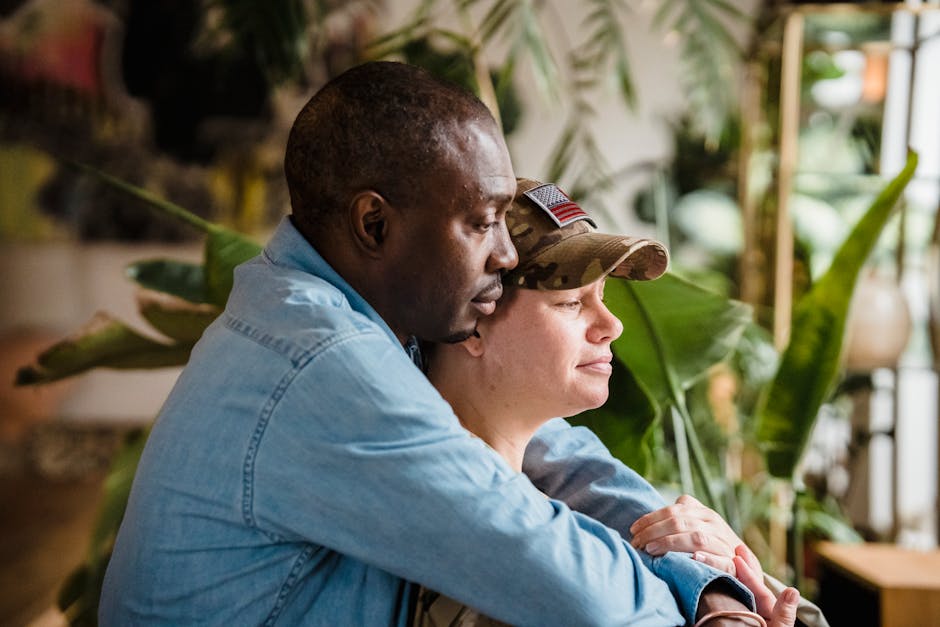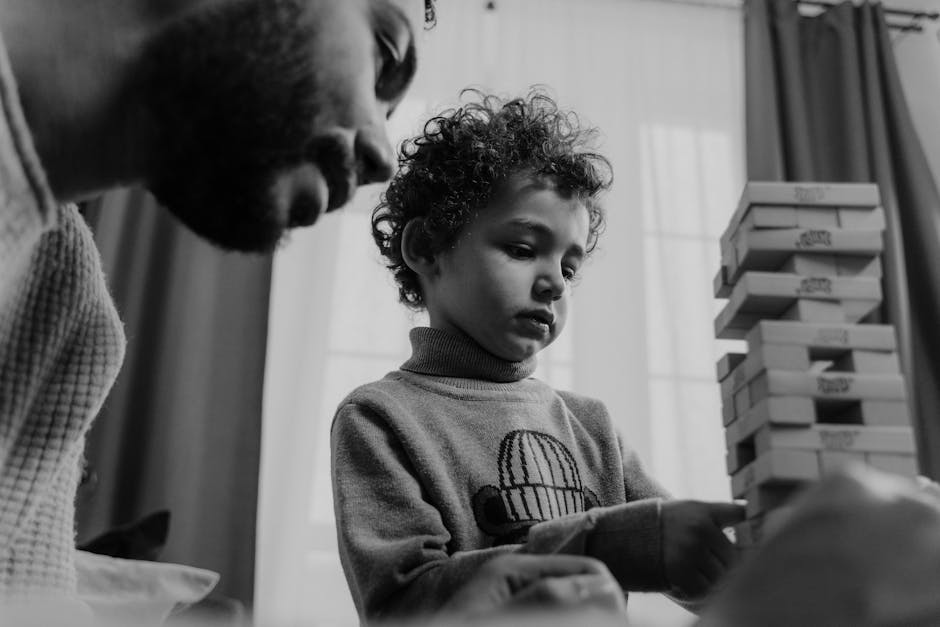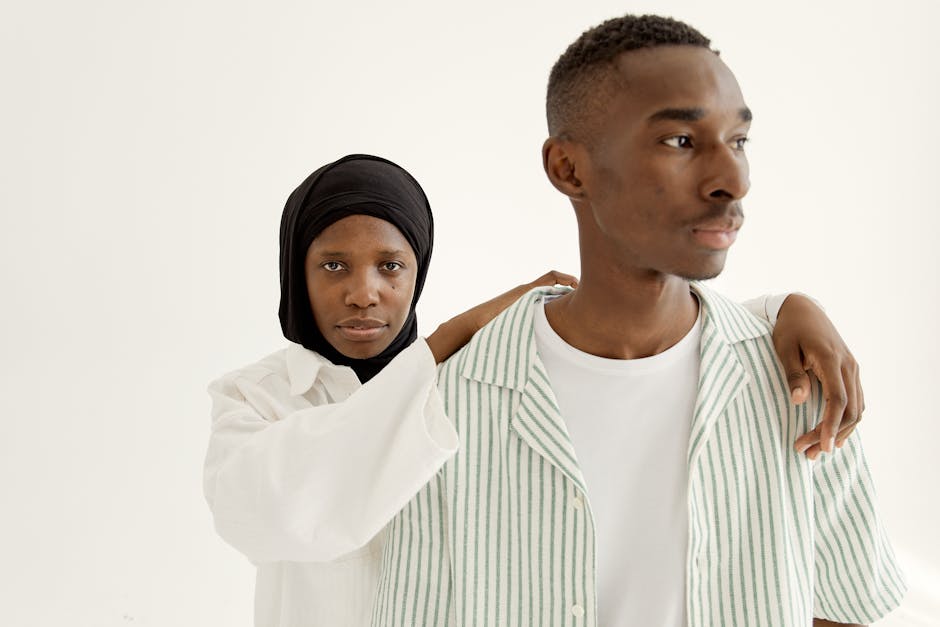Striking the Right Balance: Understanding the Dynamics of Relationships
Relationships are the cornerstone of human interaction, shaping our lives in profound ways. Whether it’s with our partners, family members, friends, or colleagues, the quality of our relationships can significantly impact our well-being and overall happiness. One key element that plays a crucial role in fostering healthy and fulfilling relationships is balance. But what exactly does balance in relationships entail? How can we achieve it, and why is it so important? In this comprehensive guide, we delve deep into the intricacies of balance in relationships, exploring its various dimensions, implications, and practical applications.
The Foundation of Balance: Communication

At the core of every successful relationship lies effective communication. Communication serves as the bedrock upon which trust, understanding, and intimacy are built. When there is a lack of communication or miscommunication in a relationship, it can lead to misunderstandings, conflicts, and feelings of resentment. Finding a balance in communication involves not only expressing your thoughts and emotions but also actively listening to your partner’s perspective. By fostering open and honest communication, you create a safe space for both parties to share their feelings, thoughts, and concerns.
For example, consider a couple who have been together for several years but have recently been experiencing a strain in their relationship. Upon closer examination, they realize that they have been avoiding difficult conversations and suppressing their true feelings out of fear of conflict. By making a conscious effort to communicate more openly and authentically, they are able to address underlying issues, strengthen their bond, and restore balance in their relationship.
Emotional Balance: Managing Expectations and Boundaries

Emotional balance is another critical aspect of healthy relationships. It involves managing expectations, setting boundaries, and regulating emotions in a way that promotes mutual respect and understanding. In any relationship, it’s essential to strike a balance between giving and receiving emotional support, without one party feeling overwhelmed or neglected. Setting clear boundaries helps establish a sense of emotional safety and security, ensuring that both individuals feel respected and valued.
For instance, imagine a friendship where one friend constantly relies on the other for emotional support, but rarely reciprocates. Over time, this imbalance can lead to feelings of resentment and burnout. By establishing boundaries and communicating openly about each other’s needs and limits, the friends can create a healthier dynamic that fosters emotional balance and mutual care.
Power Dynamics: Equality and Respect

Power dynamics play a significant role in relationships, influencing how decisions are made, conflicts are resolved, and boundaries are respected. Achieving balance in power dynamics involves cultivating a sense of equality, mutual respect, and shared decision-making. When one partner consistently exerts control or dominance over the other, it can lead to feelings of insecurity, resentment, and imbalance in the relationship.
Take, for example, a workplace relationship where a manager constantly micromanages their employees, undermining their autonomy and decision-making abilities. This imbalance in power dynamics can create a toxic work environment, erode trust, and hinder productivity. By fostering a culture of respect, collaboration, and shared responsibility, the manager can create a more balanced and harmonious workplace dynamic.
Time and Prioritization: Balancing Individual Needs

In the hustle and bustle of everyday life, it’s easy to prioritize work, social obligations, and other commitments over our relationships. However, neglecting our personal connections can lead to feelings of isolation, neglect, and imbalance. Balancing time and priorities in relationships involves making a conscious effort to allocate quality time for your loved ones, honor commitments, and prioritize meaningful interactions.
Consider a parent who is juggling a demanding job, household responsibilities, and personal hobbies, often leaving little time for quality bonding with their children. By reassessing their priorities, setting aside dedicated family time, and engaging in activities that foster connection and intimacy, the parent can restore balance in their relationship with their children and create lasting memories together.
Conflict Resolution: Navigating Differences with Grace
Conflicts are an inevitable part of any relationship, but how we navigate and resolve them can either strengthen or strain our bonds with others. Balance in conflict resolution involves approaching disagreements with empathy, active listening, and a willingness to compromise. By reframing conflicts as opportunities for growth and understanding, we can transform tense situations into valuable learning experiences that deepen our connections with others.
Imagine a couple who frequently argue about household chores, each feeling unappreciated and overwhelmed by the division of labor. By practicing active listening, expressing their needs and concerns respectfully, and working together to find a mutually agreeable solution, the couple can transform their conflicts into opportunities for collaboration, understanding, and growth.
Self-Care and Boundaries: Nurturing Individual Well-Being
While relationships are essential for our emotional and social fulfillment, it’s equally important to prioritize self-care and maintain healthy boundaries to safeguard our well-being. Balancing self-care and relationships involves honoring your own needs, setting boundaries to protect your mental and emotional health, and communicating openly about your limits and boundaries with others. By taking care of yourself, you can show up as your best self in your relationships and avoid burnout or resentment.
For instance, consider a caregiver who devotes all their time and energy to looking after a loved one, neglecting their own physical, emotional, and social needs in the process. By prioritizing self-care, seeking support from others, and setting boundaries around their caregiving responsibilities, the caregiver can prevent burnout, maintain their well-being, and continue to show up for their loved one from a place of strength and compassion.
Shared Values and Goals: Building a Foundation of Alignment
Shared values and goals are essential for creating a strong foundation of alignment in relationships. When individuals have a common understanding of their values, beliefs, and aspirations, it fosters a sense of unity, purpose, and connection. Balancing shared values and goals involves exploring and articulating your priorities, dreams, and values with your partner, identifying areas of alignment, and working together towards common objectives.
For example, consider a group of friends who decide to start a business together but soon realize they have conflicting visions, goals, and values. By engaging in open dialogue, listening to each other’s perspectives, and finding common ground, the friends can align their values and goals, build a cohesive team dynamic, and work towards a shared vision of success.
Common Misconceptions About Balance in Relationships
Despite the importance of balance in relationships, there are several common misconceptions that can hinder our ability to cultivate harmonious and fulfilling connections with others. One prevalent misconception is that balance in relationships means always compromising or sacrificing your needs and desires for the sake of the other person. In reality, balance involves a give-and-take dynamic where both parties’ needs are honored and respected.
Another misconception is that achieving balance in relationships is a one-time effort, rather than an ongoing process that requires constant communication, reflection, and adaptation. Relationships are dynamic and ever-evolving, requiring us to be attuned to our own needs and those of our partners, and to adjust our behaviors and attitudes accordingly.
Conclusion: Nurturing Harmony and Connection
In conclusion, balance in relationships is a multifaceted concept that encompasses communication, emotional regulation, power dynamics, time management, conflict resolution, self-care, shared values, and more. By cultivating balance in these various dimensions, we can nurture harmony, connection, and mutual respect in our relationships, fostering deeper understanding, intimacy, and fulfillment.
As we navigate the complexities of human interaction, let us remember that relationships are a shared journey of growth, learning, and love. By honoring our own needs and boundaries, respecting the needs of others, and fostering open and honest communication, we can create a foundation of balance that sustains and enriches our relationships for years to come.
So, as you reflect on your own relationships and strive to find that elusive balance, remember that it’s not about perfection or reaching some unattainable ideal it’s about showing up authentically, listening with an open heart, and embracing the beauty of human connection in all its messy, imperfect glory.




